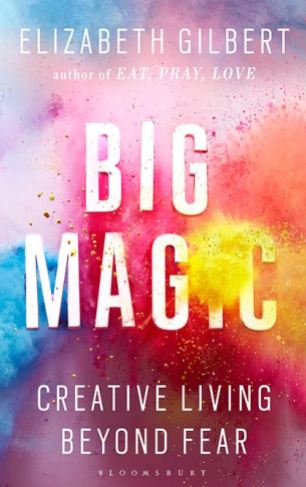Photo by Andrew Neel on Unsplash
Last week I chatted with public relations pro Christina Dick about the wonderful world of freelance writing. Our convo was part of her new podcast “I’m not an expert, but …”, where she interviews all sorts of RVA folks about who they are and what they do. [Give the podcast a listen!] During our discussion we covered a lot of bases — topics like the gig economy, being a self-starter, and breaking into the industry.
One thing I briefly touched on during the interview was reputation. I’d like to take a few minutes here to delve further into reputation because it really is one of the most important parts of being a freelance writer. In all honesty, it can make or break you.
In my freelancing writing workshop I also discuss communication and etiquette, which I sometimes assume is common-sense stuff, but for newbies it might not be. Your reputation as a good, reliable writer rests on a few key things: being kind, turning in your piece on time, delivering on what you promised, responding in a timely fashion to edits, and being gracious during the editing process.
BE KIND
This principle is pretty easy, but you’d be surprised how many people fudge it up. If you don’t operate with The Golden Rule in mind (“Do unto others, as you’d want them to do unto you,” as my mommy used to say) then you aren’t going far in freelancing. Don’t be egotistical. Don’t be whiny. Don’t be rude. No one wants to work with a jerk, especially when there are a ton of other freelancers out there who happily will do the job with a smile on their face.
BE ON TIME
Growing up my mom made sure we were always 15 minutes early for every appointment. This drove me nuts as a kid. As an adult I’m now the uncool person who is the first to arrive at a party. But I’m so glad my mom taught me about punctuality, because people who are late have no respect for you or your time. Turning in your story late also shows editors that you are a bad communicator and aren’t organized.
Life happens though and sometimes we have to push back deadlines. When I was 24 and starting my freelance career I got deathly ill. I got bronchitis, which developed into pneumonia, which in turn led to me checking into the hospital with pleurisy. At the time I was supposed to turn in a big feature story to my editor over at Blue Ridge Outdoors, but my illness wiped me out for weeks. I was so scared that my editor wouldn’t understand. Guess what though? He did! — because he is a kind and understanding human and not a monster. Editors care about their writers! We all get sick. We all have emergencies. Just be sure to communicate what is happening to your editor and they’ll surely understand and adjust deadlines as needed. (If they don’t, then they probably are a monster.)
TURN IN WHAT YOU PROMISED
This seems pretty obvious, but as an editor I’ve had writers turn in stories that weren’t what they originally pitched. Say you pitch and are assigned a travel story about the thriving beer scene in Richmond, but then you start writing the story for the publication and you realize that Richmond’s beer scene actually is dying. Breweries are closing down and beer literally is drying up.
Well, then let your editor know and readjust the angle of your story. Don’t let it get to the point where you sit down to write the story and it no longer makes sense or you have to change the entire direction of your piece. This prevents you from metaphorically punching your editor in the face.
This also goes for word count. For print publications you need to stick to the assigned word count. I still struggle with this 10 years in and have been reprimanded by editors for it. If you are assigned 600 words, don’t turn in 750. Don’t turn in 500 words. Turn in 600 words. End of story.
Also, if you promised extra elements like side bars, infographics or photos, be sure to deliver on what you signed up for.
RESPOND IN A TIMELY MANNER TO EDITS
By timely, I mean according to your editor’s production schedule. It could be by the end of the week. It could be tomorrow morning. It could be by end of day. If you editor doesn’t give you a time frame, be sure to ask.
I once had an editor give me edits on a Friday evening and not tell me she needed them back early Monday morning when the story went to press. I didn’t get them back to her. Don’t put yourself in that position, friends.
ACCEPT EDITS WITH GRACE
This is a hard one. Writing is incredibly personal. After all, it is your voice and thoughts. So when someone edits you, it can be hard not to take it personally. Trust me, I know. Still to this day, a huge edit can sting. It deflates my ego. And it sometimes makes me question if I’m even good at what I do. OMG, AM I?
It may look like your story has been hacked to death, but don’t let all those red marks put you in an existential funk. Editing doesn’t exist to deflate you and make you feel like an idiot. It’s the opposite. It’s constructive criticism and is meant to help you grow and lift you up as a writer.
I once worked with a writer who responded to my edits with extreme passive aggression. During each editing process I felt like I was walking on eggshells because of the back-and-forth email commentary with said person. Finally we went our separate ways because the communication had an air of toxicity to it. Part of writing is editing. If it’s a tough pill for you to swallow, you gotta get over it.
Want to know more about freelance etiquette? Check out this piece I wrote for MediaBistro where editors at top publications share qualities they look for in writers.



















